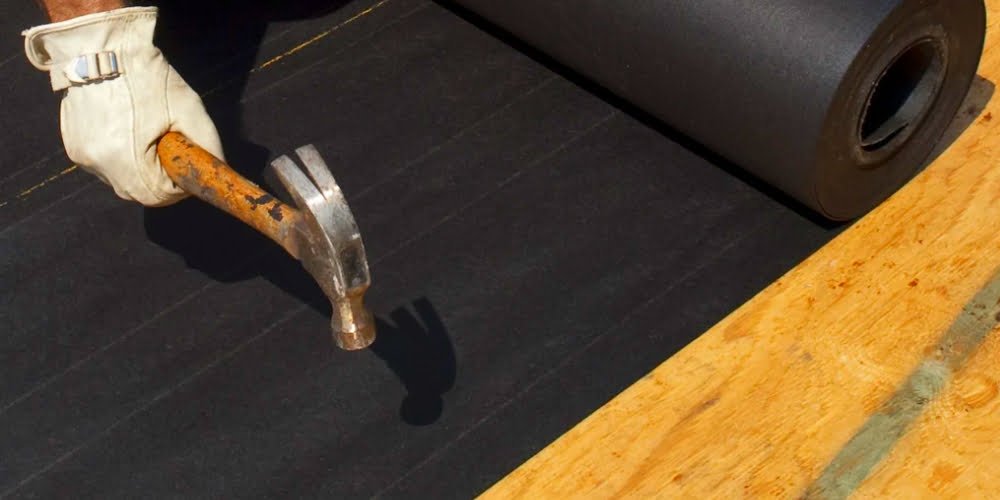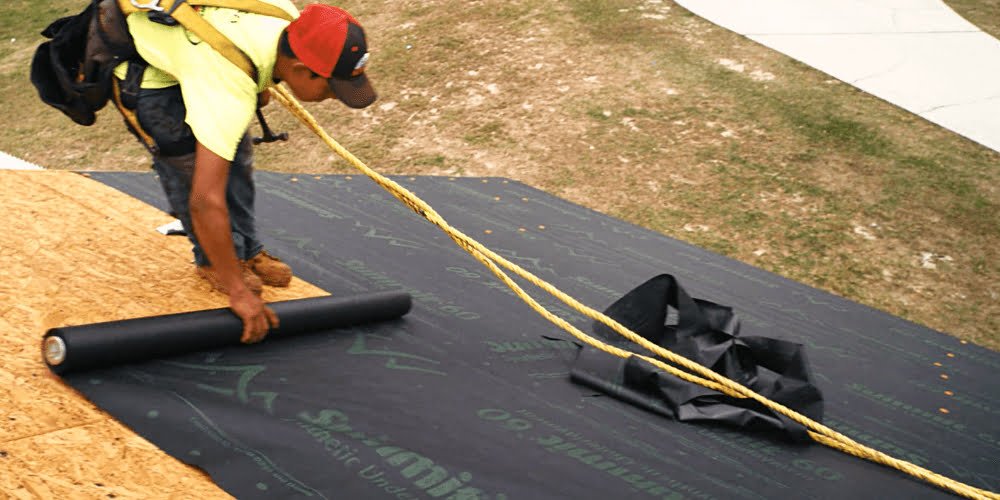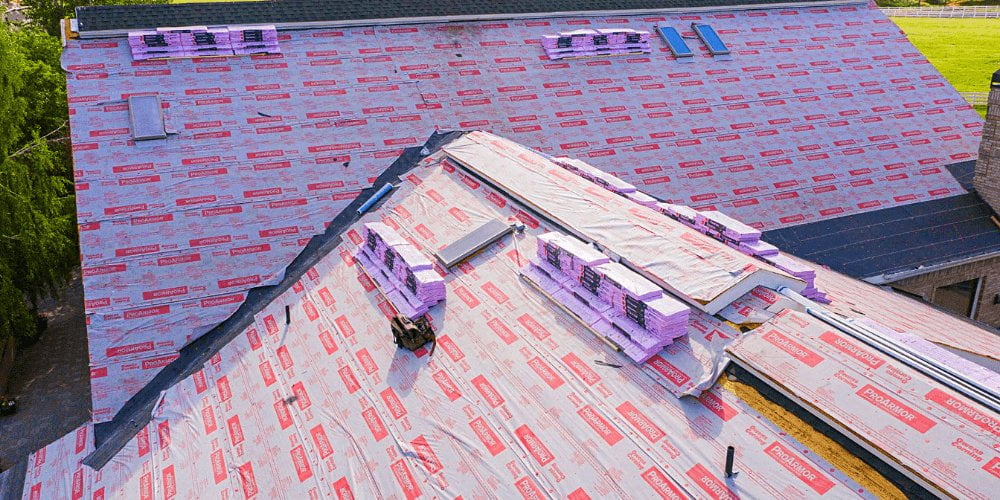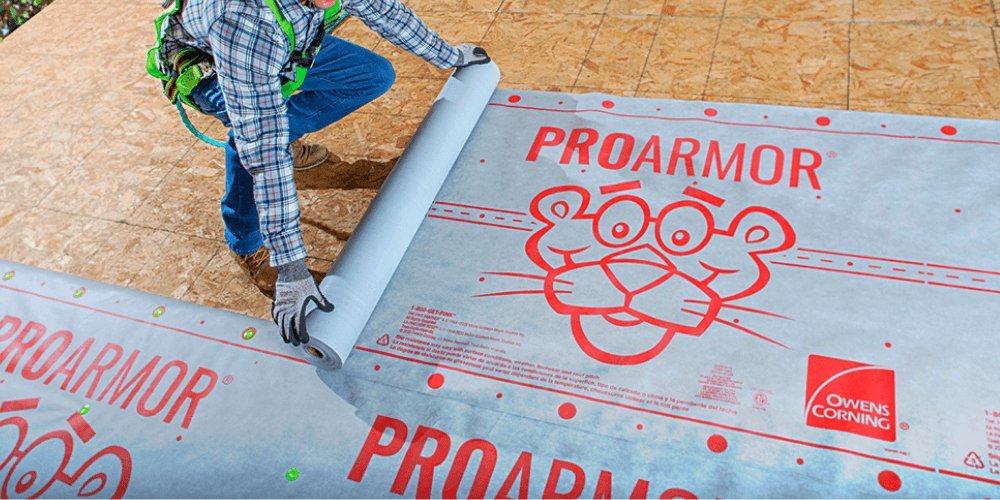How To Select The Best Pittsburgh Roof Underlayment
How To Select The Best Pittsburgh Roof Underlayment
When most Western Pennsylvania homeowners think about roofing, they often forget the underlayment and seem to focus on color of shingle they want. However, the type of Pittsburgh roof underlayment you install is just as important as the shingles attached to it.
How Underlayment Protects Your Pittsburgh Roof
The underlayment serves as a secondary barrier for wooden decking (the base of your roof) that protects it from moisture in case the shingles get damaged or dislodged. While your asphalt shingle will protect your Pittsburgh roofing systems from the elements, there is still a possibility that moisture and heat will penetrate. The extra layer of protection insulates the roof and keeps the moisture and heat from seeping through to the house. However, not all underlayment options offer the same level of protection.
There are three common types of Pittsburgh roof underlayment. Choosing the right one for your roof will eliminate the need for many repairs, and it will lengthen the lifespan of your roof. The three types of underlayment are, asphalt-saturated felt, non-bitumen synthetic underlayment, and rubberized asphalt underlayment. Below, we examine each type to help you make an informed choice.
Asphalt-Saturated Felt Roof Underlayment
The asphalt saturated felt roof underlayment is made from either fiberglass or organic felt that is saturated with asphalt. The organic felt version is more common type of the two. The roofing industry refers to it as organic since it comes with a cellulose base. This roofing felt is the most popular for good reason. It is cheap and simple to install. However, this is the least durable option. It wrinkles and tears quicker and is not entirely waterproof. Moreover, it tends to deteriorate with exposure to direct UV. However, all this will depend on the thickness and quality of the underlayment. For example, a 30-pound roof underlayment option will be more durable and water-resistant than a 15-pound underlayment.
Asphalt-saturated felt is best suited for steep-sloped roofs because it tends to absorb water. However, you can still install them in a low-sloped roof of, say, 2:12, provided the courses have an overlap of not less than 19 inches. Check out some of the pros and cons listed below.
Pros
- Cheap
- Easy to install
Cons
- Least durable
- Least water resistance

Rubberized Asphalt Roof Underlayment
Rubberized asphalt is a peel and stick roof underlayment with a self-adhering surface protected by a peel-off membrane. It is made from materials with rubber-like qualities. The rubber polymers are impervious to water which makes the underlayment 100% waterproof. Also, their elastic nature gives them self-sealing abilities, enabling them to seal the spaces between the nails and fasteners.
Rubberized asphalt is ideal for colder and snowy regions due to its waterproof nature. But it also performs well in high temperatures. If rated 250° F or higher, you can even install it under metal roofing. Of the three, this is the most expensive option owing to the high cost of the materials. It is also heavy and labor-intensive, especially in steep-sloped roofs. That makes it the least popular roof underlayment. Check out some of the pros and cons listed below.
Pros
- 100% waterproof
- Self-sealing abilities
Cons
- Expensive
- Labor intensive
Non-Bitumen Synthetic Roof Underlayment
Synthetic is the latest type of roof underlayment and is quickly becoming the go-to choice for many people. The underlayment is made by mixing polymers with polypropylene or polyethylene. The manufacturers also incorporate fiberglass for added strength. This underlayment is very durable since the thermoplastic polymers are quite resistant to UV penetration, tear, and fungal growth. They also have a high tolerance to high temperatures. Of the three, non-bitumen synthetic has the longest lifespan.
Furthermore, the underlayment comes with an anti-slip feature that makes it safer to walk on the roof, even on steeper slopes. Their light nature also makes them easier to install and appropriate for all types of slopes. However, they may require cap nail fastening, which is likely to increase labor costs and heighten the risk of water intrusion if damaged. Check out some of the pros and cons listed below.
Pros
- Light
- Longest lifespan
- Anti-slip feature
- Ideal for all slopes
Cons
- Nail fastening increases labor cost
- Fasteners increase the risk of water intrusion
Importance Factors of Roof underlayment
Installing an underlayment between the top layer and roof deck can be beneficial. It can enhance the Pittsburgh roof’s durability, improve its lifespan and help lower your energy bills. Below are some of the benefits of installing a Pittsburgh roof underlayment.
Backup Protection
Although shingles or tiles will protect the roof, they can get damaged over time. In such cases, the underlayment can work as backup protection.
Moisture and Heat Barrier
The top layer will guard the roof against the vagaries of weather, but moisture and heat can still find a way to seep through. An underlayment can act as an extra barrier, thus preventing the two from permeating into the building.
Protection From Moisture Damage
If you live in a region that experiences excess rain, snow, or ice, the extreme weather can take a toll on your roof. That may lead to leaks and water damage. The extra layer underneath can act as a barrier, preventing the water from getting through.
Home Energy Efficiency
As stated above, an underlayment gives the roof much-needed insulation. It prevents air and heat from permeating through into the building, thus saving you a lot of money in energy bills.
Do all Types of Roofs Need An Underlayment?
An Underlayment may not be an absolute necessity in all cases. However, it can still be beneficial. It may not protect the roof’s structural integrity as in metal roofing, but it will act as a moisture barrier. Moreover, it can prevent condensation.
How To Select the Best Pittsburgh Roofing Underlayment?
When choosing the best underlayment for your roof, you have to consider a variety of factors. They include the following:
Angel of Roof Slope
The angel of roof slope should also be a major guiding componet. For instance, asphalt-felt is the least suitable underlayment for Pittsburgh low-sloped roof system. But, non-bitumen synthetic will work with almost all types of roofing slopes.
Roofing Material Types
Ensure the type of roof underlayment you decide to allow to be installed is best suited for your homes roof. For instance, shingles will work well with asphalt-felt. Also, your underlayment needs to have a high heat resistance if you have a metal roof.
Weather
The type of weather that occurs at your home is also an important consideration. Some underlayment may not last as long in certain weather conditions. For example, asphalt-felt is not the best selection if you live in an area that experiences heavy snow or rain due to its poor water resistance overtime.
Pittsburgh Roof Replacement Budget
Selecting the cheapest option available is not typically the best decision. In addition, the Pittsburgh roof replacement budget should be the last factor you consider when determining what option best suits your particular situation. Most honest roofing company’s in Pittsburgh will offer an affordable middle of the road selection that will protect your decking and homes interior fine.
Conclusion
Pittsburgh roof underlayment is an essential part of roofing that deserves as much attention as the other parts of roofing. The three selections available are all different and will serve different needs. In addition, if you want the least expensive option available, asphalt-felt would most likely be the selection for you. Rubberized asphalt will provide you with the best water resistance, but tends to be the most expensive option available.
If you are looking for the best balance between price and performance, non-bitumen synthetic is your best bet. However, your ultimate choice should depend on your specific Pittsburgh roofing needs. Contact the #1 rated roofing contractor in Pittsburgh, Peak Precision Contracting! We provide lifetime protected roofing systems at affordable rates and guarantee 100% customer satisfaction on every single project. Contact Peak Precision Contracting Today!




